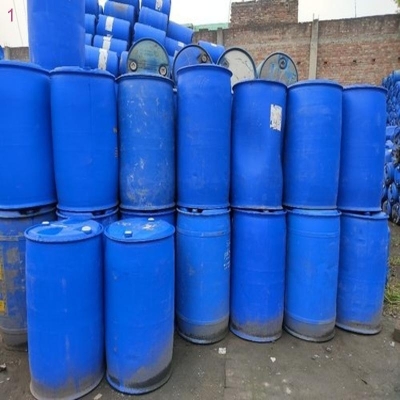-
Categories
-
Pharmaceutical Intermediates
-
Active Pharmaceutical Ingredients
-
Food Additives
- Industrial Coatings
- Agrochemicals
- Dyes and Pigments
- Surfactant
- Flavors and Fragrances
- Chemical Reagents
- Catalyst and Auxiliary
- Natural Products
- Inorganic Chemistry
-
Organic Chemistry
-
Biochemical Engineering
- Analytical Chemistry
-
Cosmetic Ingredient
- Water Treatment Chemical
-
Pharmaceutical Intermediates
Promotion
ECHEMI Mall
Wholesale
Weekly Price
Exhibition
News
-
Trade Service
The University of Southampton and REAPsystems have jointly discovered a new lithium battery, as an energy storage device for photovoltaic systems, photovoltaic energy storage efficiency can be increased to 95%, which can greatly reduce the cost of
solar power generation.
Most of the current photovoltaic systems also use lead-acid batteries as energy storage devices, but in comparison, lithium iron phosphate battery replacement can give full play to its advantages, including improving energy storage efficiency, extending service life, reducing costs and so on
.
This type of lithium battery is used as an energy storage device, which can improve energy efficiency to 95%, far more than 80% of traditional lead-acid batteries, and has a service life
of 1600 charge and discharge.
The project is sponsored by REAPsystems and led
by Yue Wu, a student at MSc's Institute of Sustainable Energy Technology, and his supervisor, Dr.
Carlos Poncede Leon, Professor Tom Markvart, Dr.
John Low.
The project specifically studies the use of lithium batteries as energy storage devices
for photovoltaic systems.
Yue Wu said, "Lead-acid batteries are energy storage devices
traditionally used in most photovoltaic systems.
However, as energy storage devices, lithium batteries, especially the LiFePO4 batteries we use, have more favorable characteristics
.
”
The collection of this data requires the connection of lithium iron phosphate batteries and photovoltaic systems, which are installed on university buildings using specially designed battery management systems
provided by REAPsystems.
Yue Wu added, "Studies have shown that this lithium battery has 95% energy efficiency, while the lead-acid battery commonly used today is only about
80%.
Lithium batteries are lighter in weight and have a longer service life
than lead-acid batteries.
The number of charge and discharge cycles can reach 1600 cycles, which means they do not need to be replaced
frequently.
”
Although the battery needs further testing
before it can be put into commercial photovoltaic power generation systems.
But research has shown that LiFePO4 batteries have the potential to improve the efficiency of solar power systems and help reduce their installation and maintenance costs
.
Dr.
Carlos Poncede Leon and Dr.
John Low are planning a new group of students to do further project research
.
Dr Dennis Doerffel, founder of REAPsystems and former researcher at the University of Southampton, said: "For a variety of energy sources (renewable or non-renewable), energy storage devices, such as batteries, play an important role in energy use, and LiFePO4 batteries have higher efficiency, longer service life, lighter weight and lower cost than traditional lead-acid batteries
.
We can expect to see this battery widely used in photovoltaic systems, as well as other renewable energy systems
.
”
The University of Southampton and REAPsystems have jointly discovered a new lithium battery, as an energy storage device for photovoltaic systems, photovoltaic energy storage efficiency can be increased to 95%, which can greatly reduce the cost of
solar power generation.
Most of the current photovoltaic systems also use lead-acid batteries as energy storage devices, but in comparison, lithium iron phosphate battery replacement can give full play to its advantages, including improving energy storage efficiency, extending service life, reducing costs and so on
.
This type of lithium battery is used as an energy storage device, which can improve energy efficiency to 95%, far more than 80% of traditional lead-acid batteries, and has a service life
of 1600 charge and discharge.
The project is sponsored by REAPsystems and led
by Yue Wu, a student at MSc's Institute of Sustainable Energy Technology, and his supervisor, Dr.
Carlos Poncede Leon, Professor Tom Markvart, Dr.
John Low.
The project specifically studies the use of lithium batteries as energy storage devices
for photovoltaic systems.
Yue Wu said, "Lead-acid batteries are energy storage devices
traditionally used in most photovoltaic systems.
However, as energy storage devices, lithium batteries, especially the LiFePO4 batteries we use, have more favorable characteristics
.
”
The collection of this data requires the connection of lithium iron phosphate batteries and photovoltaic systems, which are installed on university buildings using specially designed battery management systems
provided by REAPsystems.
Yue Wu added, "Studies have shown that this lithium battery has 95% energy efficiency, while the lead-acid battery commonly used today is only about
80%.
Lithium batteries are lighter in weight and have a longer service life
than lead-acid batteries.
The number of charge and discharge cycles can reach 1600 cycles, which means they do not need to be replaced
frequently.
”
Although the battery needs further testing
before it can be put into commercial photovoltaic power generation systems.
But research has shown that LiFePO4 batteries have the potential to improve the efficiency of solar power systems and help reduce their installation and maintenance costs
.
Dr.
Carlos Poncede Leon and Dr.
John Low are planning a new group of students to do further project research
.
Dr Dennis Doerffel, founder of REAPsystems and former researcher at the University of Southampton, said: "For a variety of energy sources (renewable or non-renewable), energy storage devices, such as batteries, play an important role in energy use, and LiFePO4 batteries have higher efficiency, longer service life, lighter weight and lower cost than traditional lead-acid batteries
.
We can expect to see this battery widely used in photovoltaic systems, as well as other renewable energy systems
.
”







